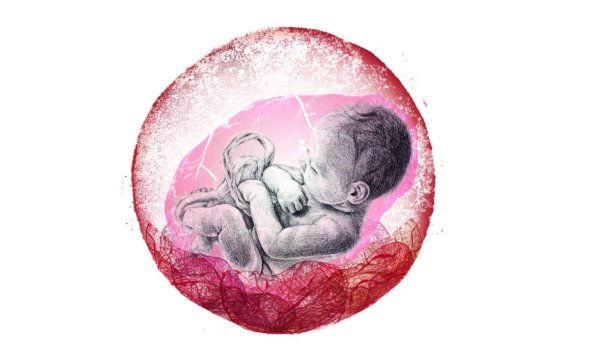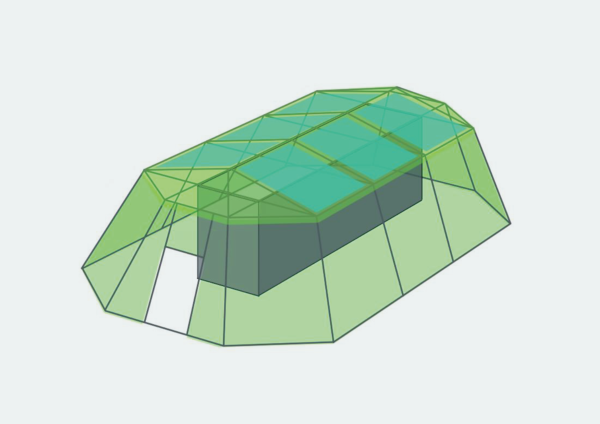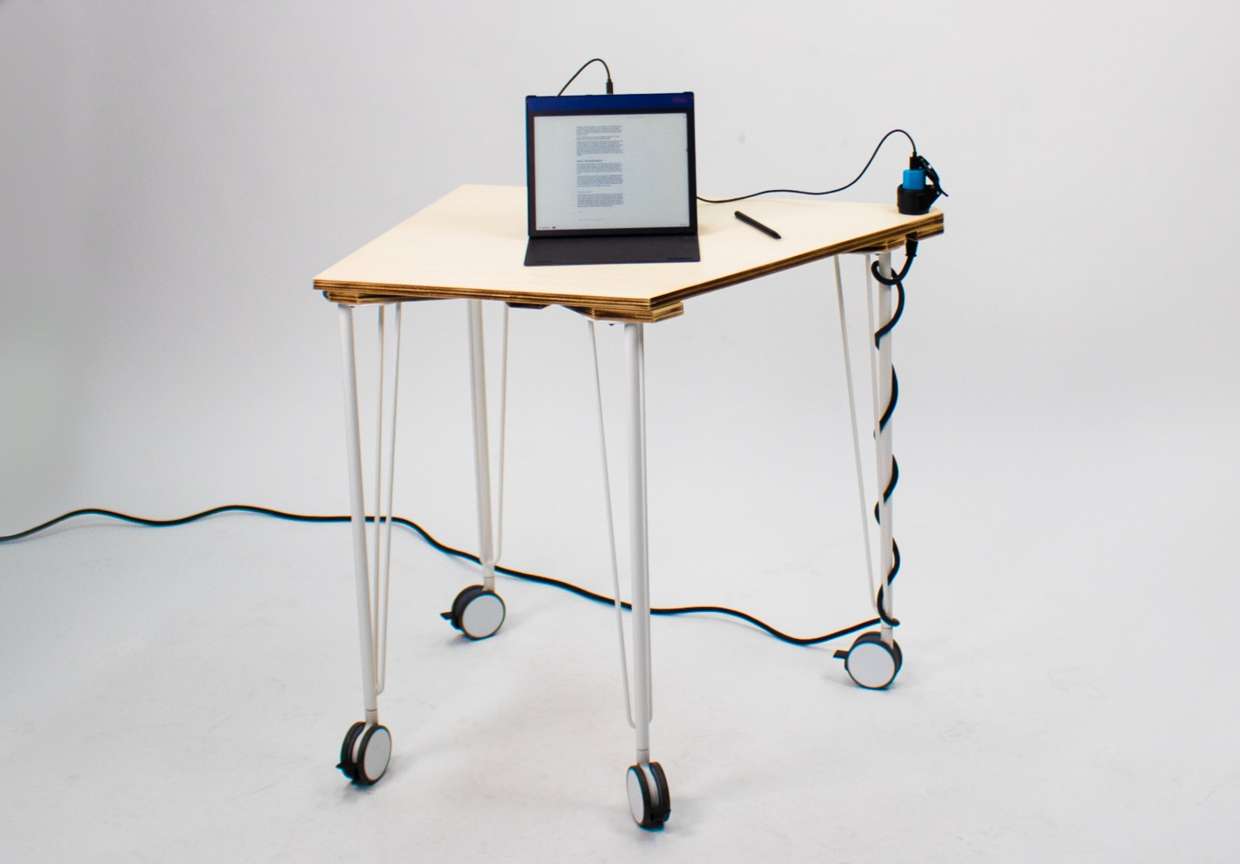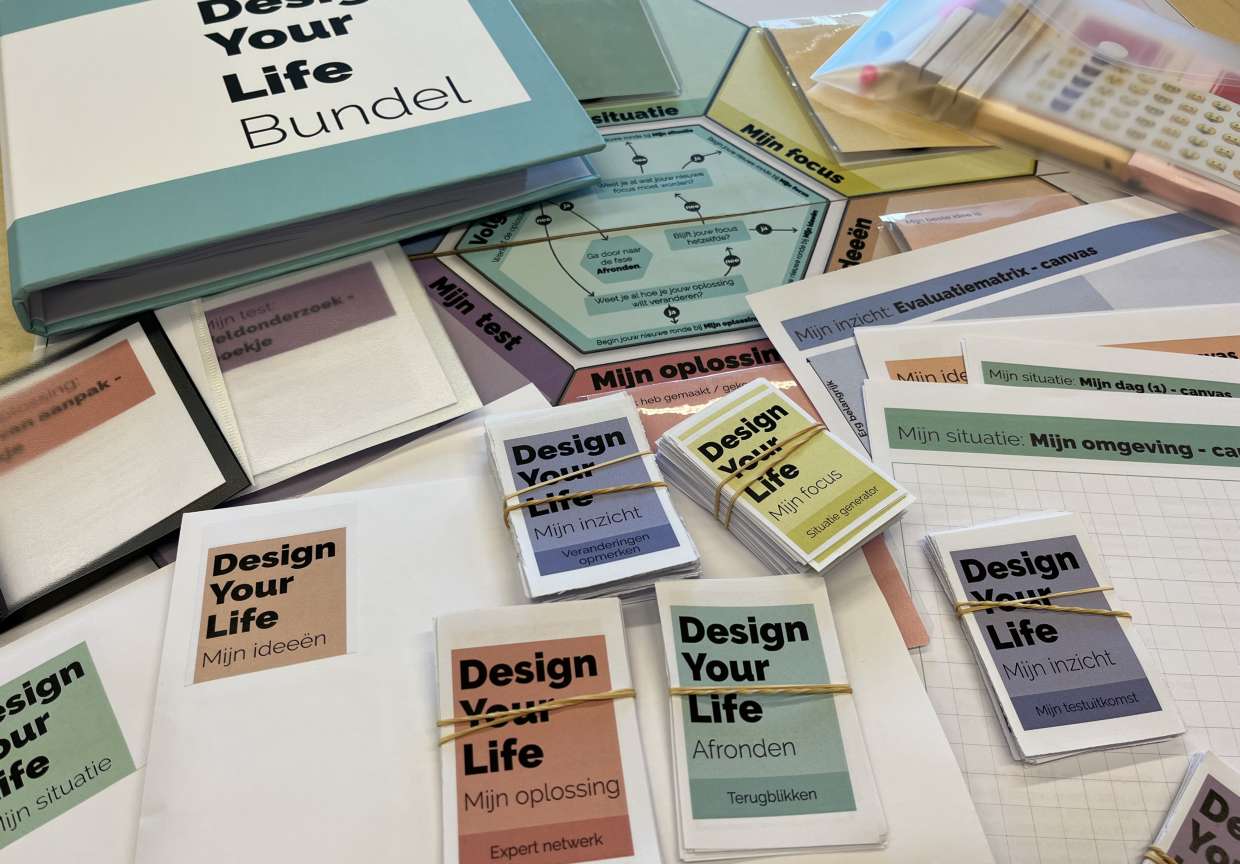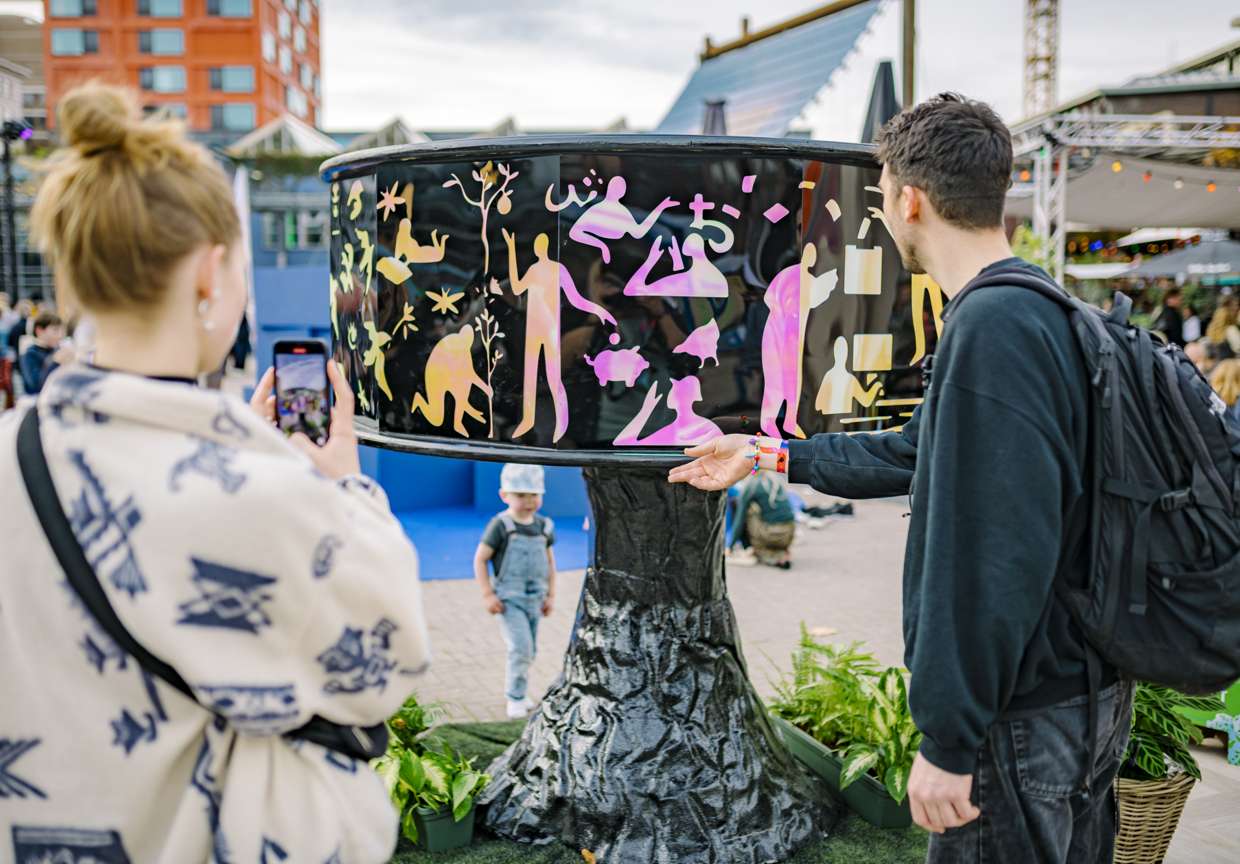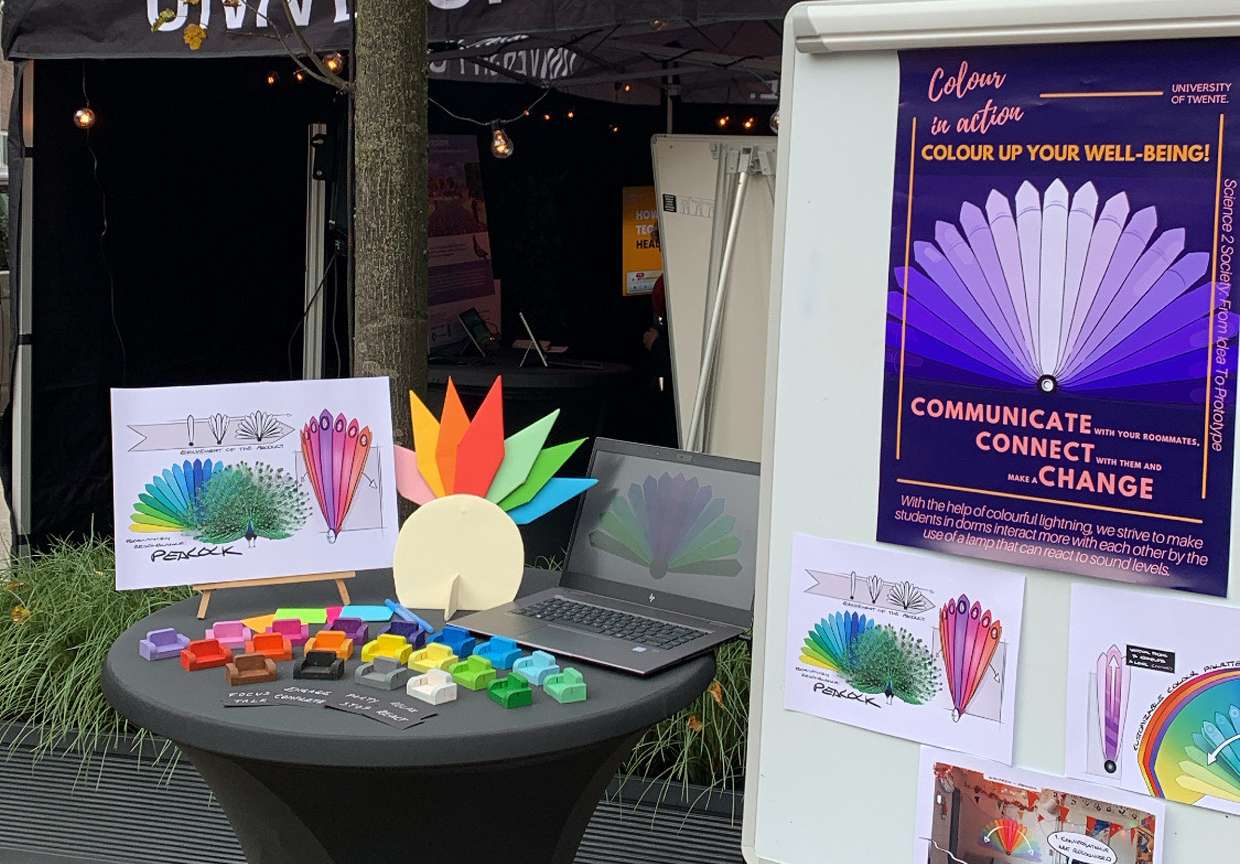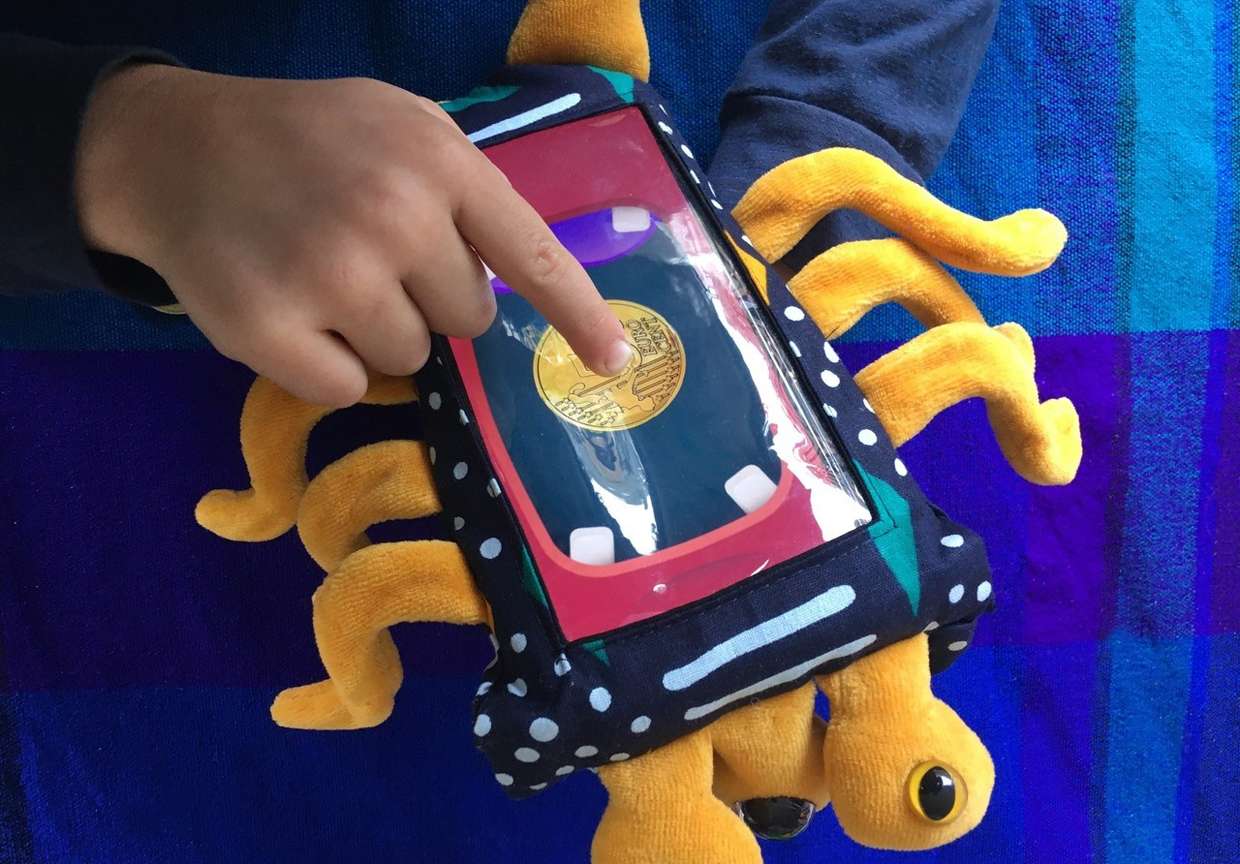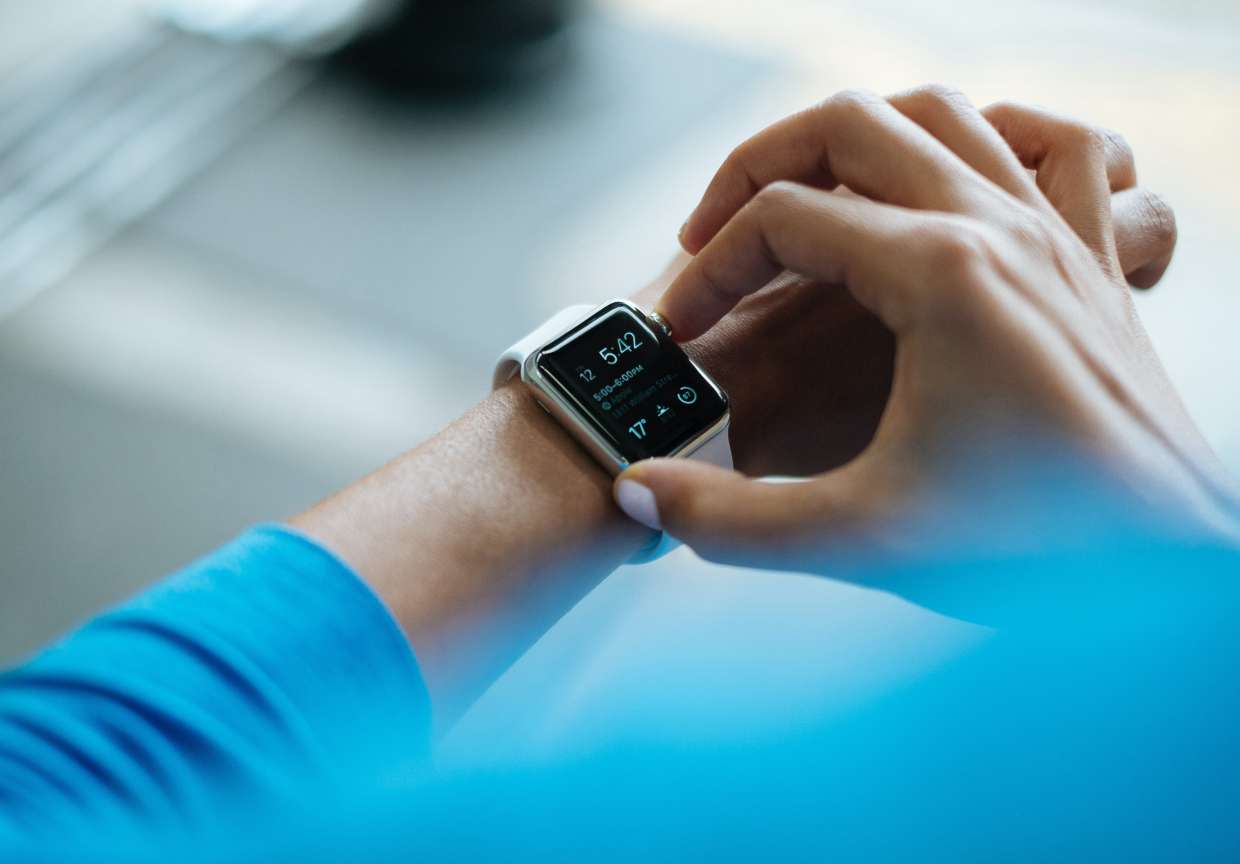Picture of EDUBox in action created by Eva de Wit
University of Twente partnered up with Embassy of Health to connect designers, reasearchers and visitors in order to define futures regarding chronic health. How do we change our attitude about health? It’s time that we look for other routes and perspectives to make society healthier and prevent healthcare from becoming too expensive and unattainable. We know what is coming our way, and we feel the pressure on the labour market, on the waiting lists and on our wallets. However, it’s hard to change the reality. It requires adjusting our way of thinking, acting and working together.
Monuments for future m/otherhood
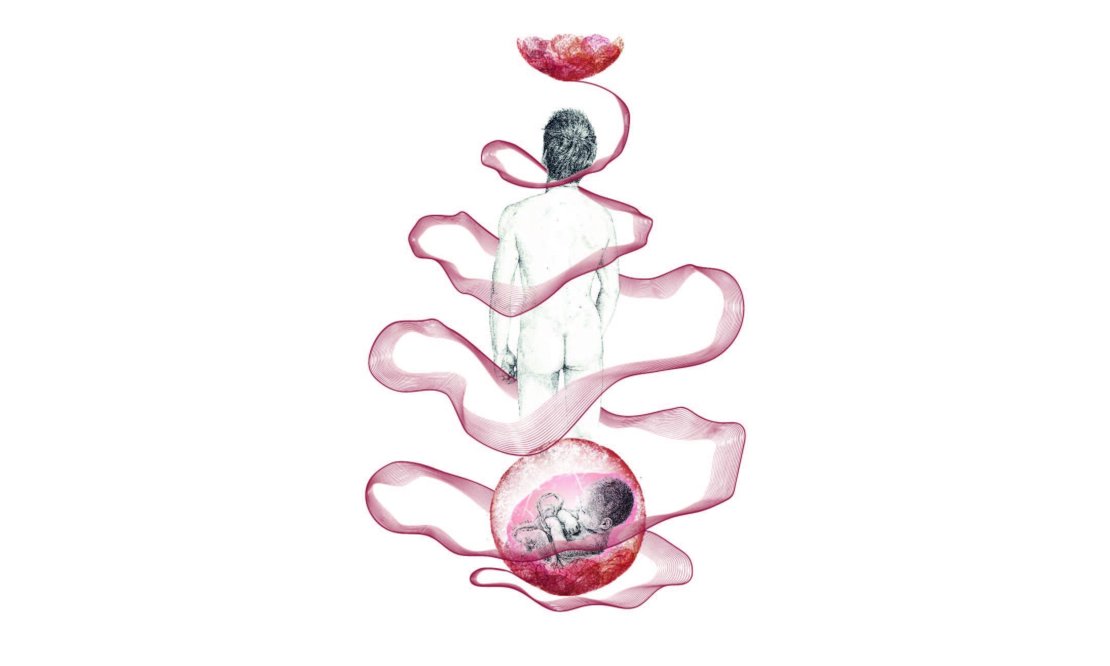
It’s the year 2050. Babies are now fully gestated in artificial wombs (AW). On their 18th birthday, people who were born from an AW get a chance to visit a monument that displays a part of the machine in which they were gestated.
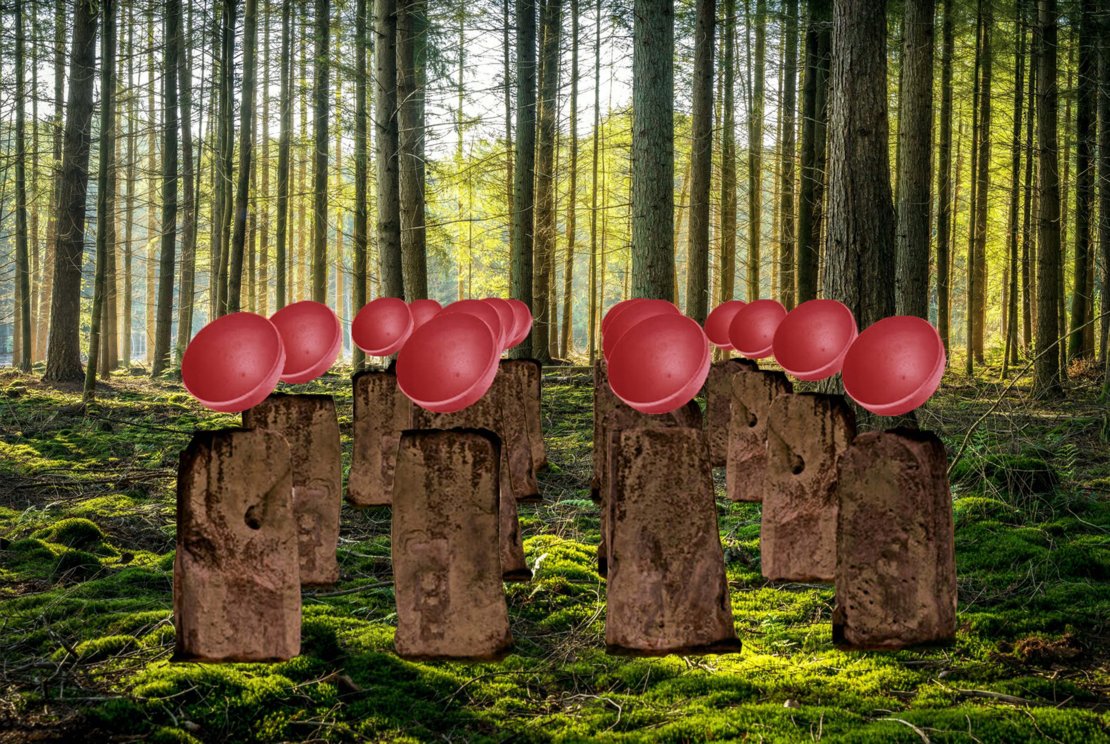
Do you want to know more about Lisa Mandemaker, her experience as DesignLab's designer-in-residence and her collaboration with UT scientists of the Gravitation Programme Ethics of Socially Disruptive Technologies (ESDiT)?
EDUBox
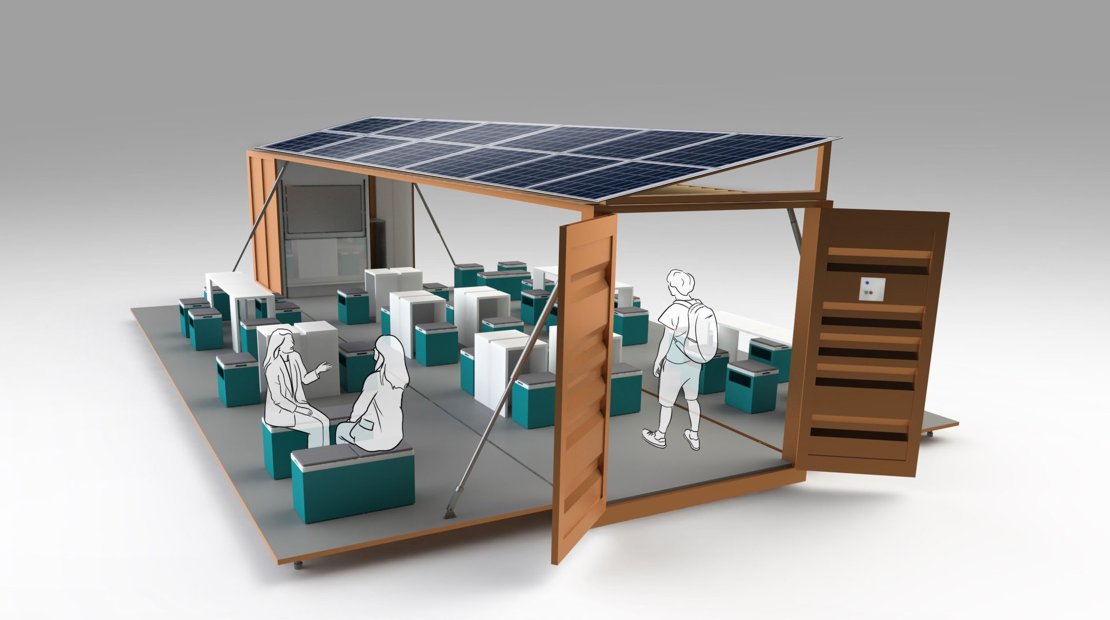
EDUBox is a self-contained, off-grid and modular learning environment, part of the Humanitarian Engineering action. It is meant to be a flexible learning environment, with a "hands-on" lab included, able to be shipped and used in almost all the environments. The EDUbox follows the STEM classification as a base for its flexible learning setup. At Dutch Design Week, the space serves as a learning environment where designers, researchers and visitors co-shape the future of Chronic Health. Project members at DDW: Alberto Martinetti and Peter Chemweno. (visual by Joëlle Steendam)
Interactive showcases UT
Designers, researchers and visitors discover how to shape the future of chronic health together, in learning environment EDUBox. Next to this spot, you will find the lightbox 'Connecting worlds for a better future', which serves as a meeting place.
-
Mini Design Ride
During DDW, 35 Mini Cooper Design Rides drive through Eindhoven. Each car will have an installation on top designed by DDW participants, which will be visible throughout Eindhoven for nine days. In July, after a generative session, DesignLab's DreamTeam pitched their proposal. Using the mycelium as a metaphor for a people’s network, this installation depicts the societal stakeholders and how they should stay connected. In a forest, the mycelium helps the plants in sharing nutrients. In society, we should share knowledge to create futures in which we can flourish together!
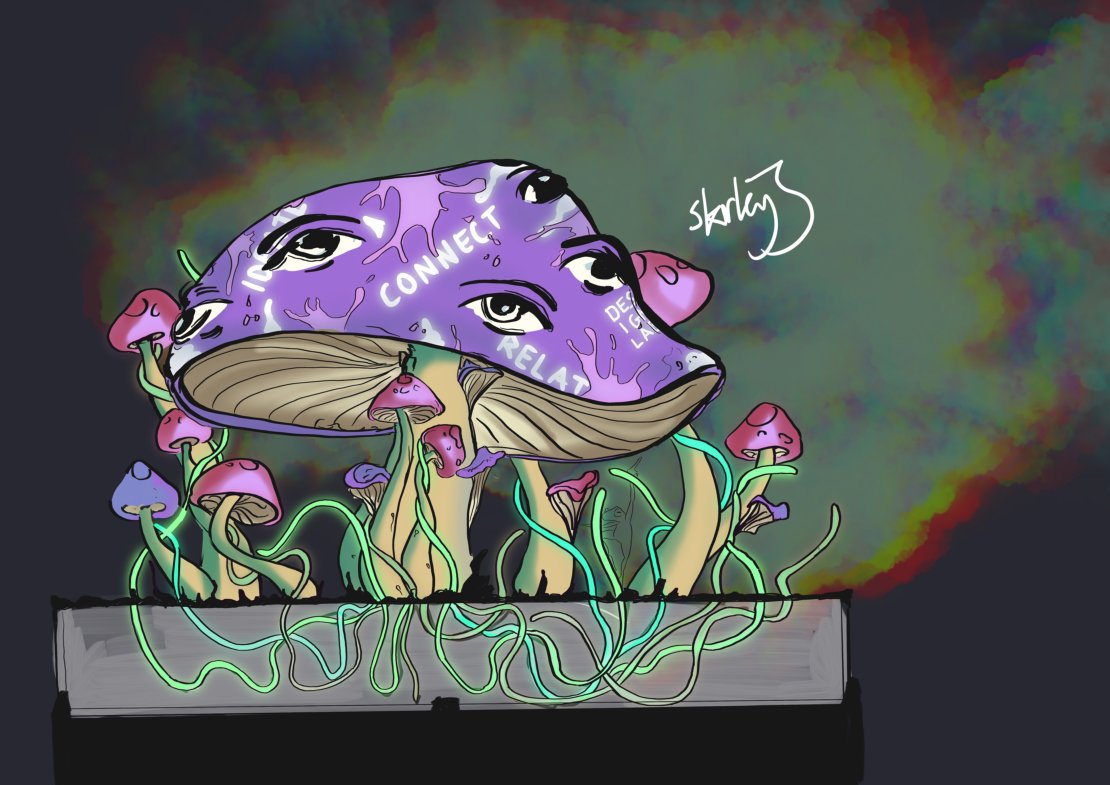
Conference
Join us at the Embassy of Health conference during Dutch Design Week! As part of the programme, DesignLab and other organisations will take up on the necessity to work together with different stakeholders (including our planet). We will shift from perspective between the current context and responsible futures, while exploring questions such as "How do we create the conditions for collaboration now?" and "How to embrace changes in roles in the long(er) term?" You are invited to join the discussion on the 28th of October, at Radio Royaal in Eindhoven:

